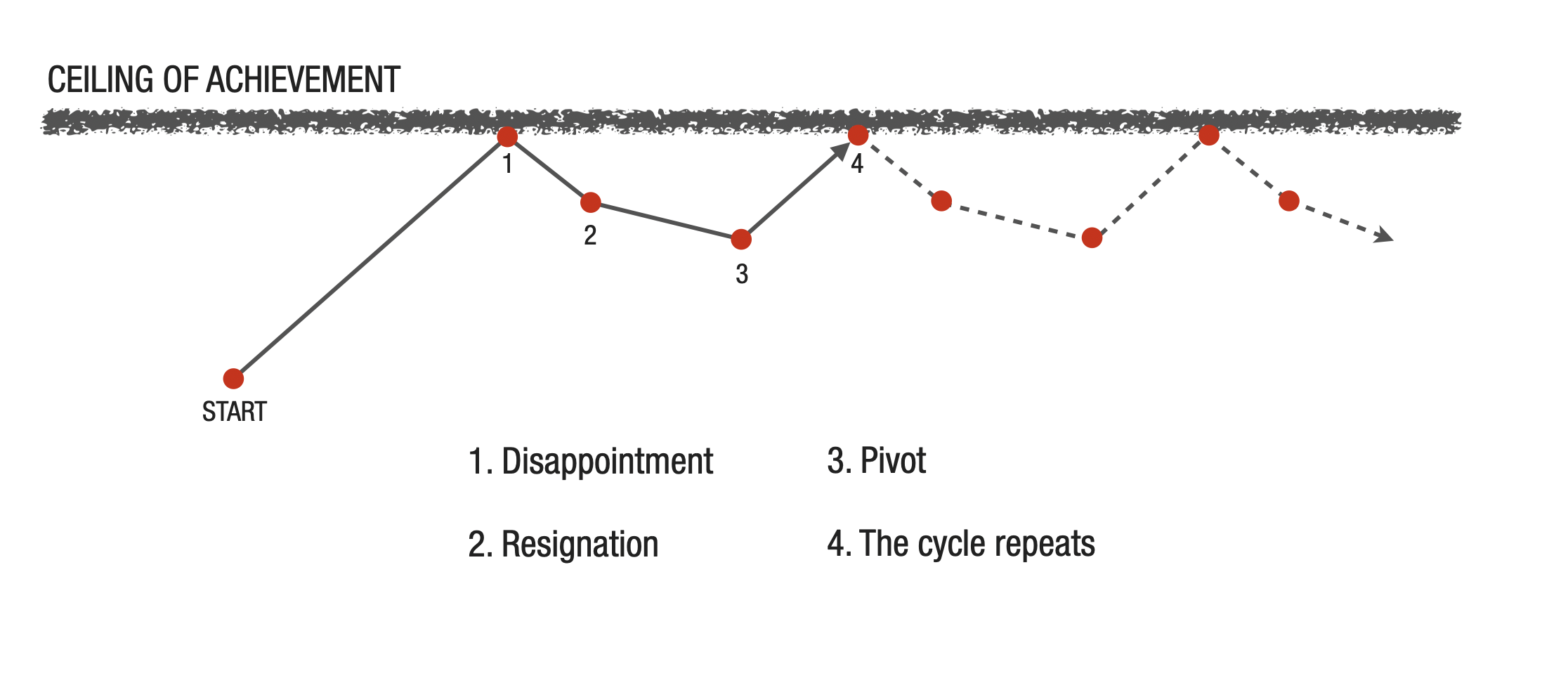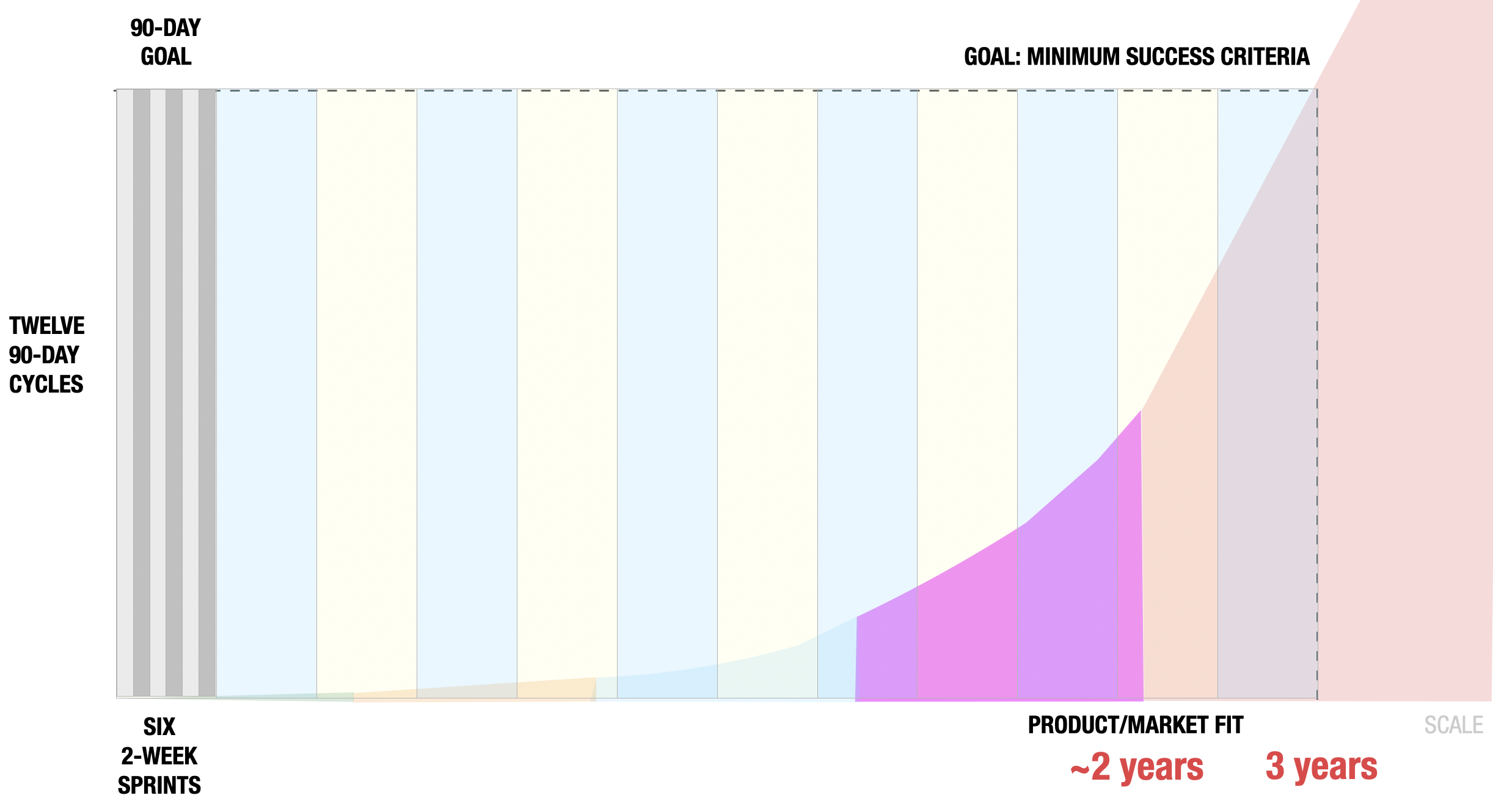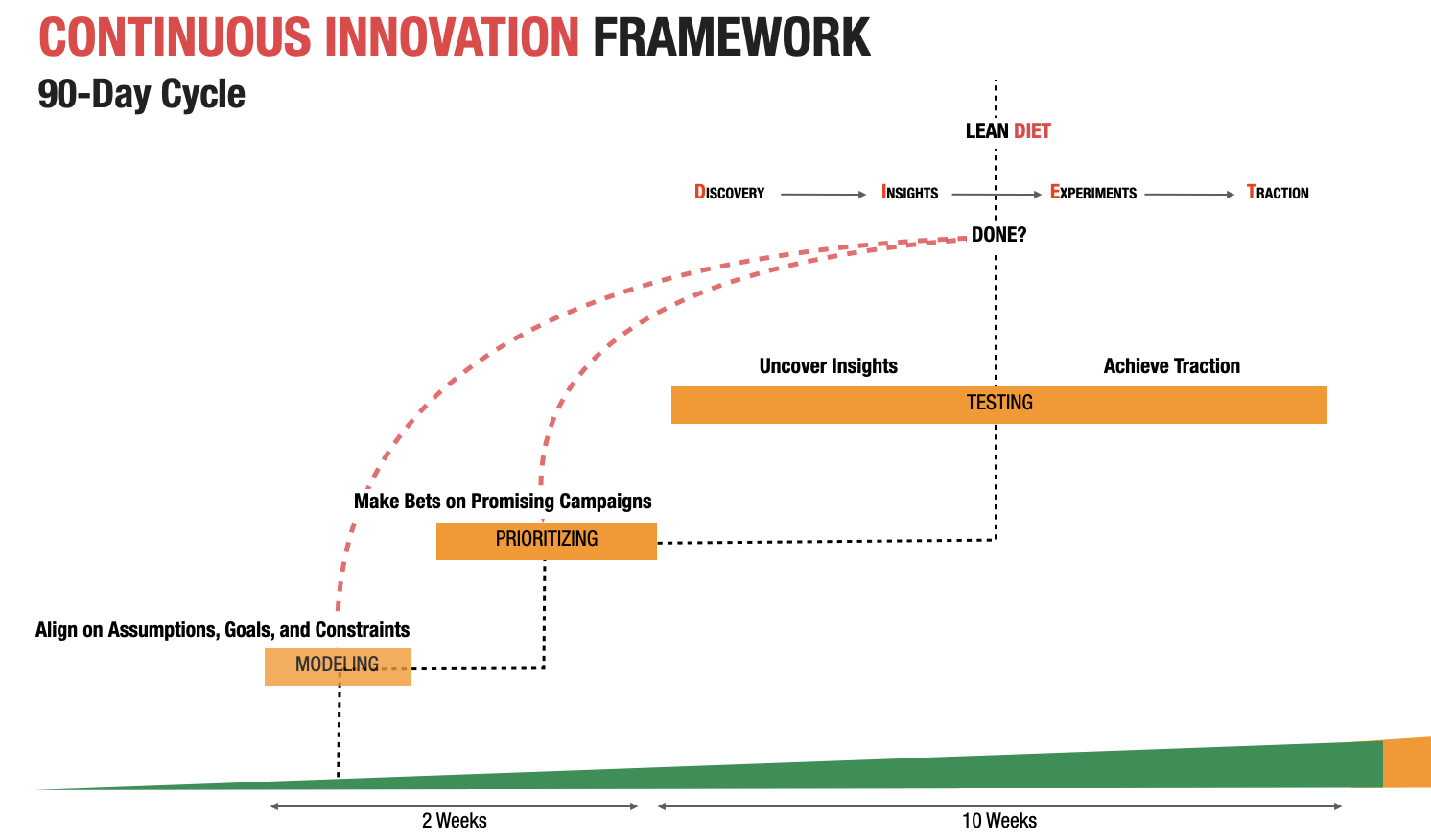Where Do Good Ideas Come From?
Good ideas can come from anywhere. The challenge is
that good ideas are rare and often indistinguishable from bad ideas at the
outset. Furthermore, when you chase a bad idea for too long, you waste needless
time, money, and effort — not working on a good idea.
This is what that looks like:

A pivot not grounded in learning is a disguised "see what sticks" strategy.
The LEAN Validation Framework (LVF) was designed to help.
Stop Wandering Aimlessly.
LVF is a new way of working that prioritizes your riskiest assumptions above
everything else and unleashes the creativity of your entire team for problem solving.
At LEANSTACK, we have used this framework to launch best-selling books, tools, and software
products used by millions of people. We have also helped hundreds of thousands
of other entrepreneurs do the same across a wide-ranging array of products and
services ranging from low-tech to high-tech and physical to digital products.
Here is a short overview of the 3 key concepts behind the LEAN validation framework:
1. Goals, Cycles, and Sprints.
The early stage journey is uncertain, but that doesn't mean it has to be messy.
We liken the journey to systematically navigating an idea labyrinth. Sure there are
twists and turns, dead-ends and back-tracking, but it isn't aimless wandering.
It starts by break the journey to product/market fit into a series of
goals, cycles, and sprints.
- 3-year goals help you ballpark a meaningful destination,
- 90-day cycles is the right amount of time to make measurable progress while being short enough to drive urgency, and
- 2-week sprints is where you use small and fast experiments to test your strategy and make course-corrections.

2. Modeling, Prioritizing, and Testing.
When you're moving really fast, you need adaptive models, not static plans.
Each 90-Day cycle is made up of 3 stages: Modeling, Prioritizing, and Testing.
- Modeling: Simple models, like the Lean Canvas and the Traction Roadmap, help align the entire team around key assumptions, goals, and constraints that shape the 90-Day cycle objectives.
- Prioritizing: The team then formulates and pitches possible campaigns for meeting the 90-Day cycle objectives.
- Testing: You then use the right mix of generative and evaluative experiments or learning and validating experiments to uncover insights and achieve traction.

3. Teams over Ideas.
And finally beause good ideas can come from anywhere, we place more emphasis
on developing good teams and less emphasis on the quality of the starting idea.
Good teams also quickly recognize and kill off bad ideas and eventually find good
ideas. Bad teams can’t tell a good idea from a bad idea and they either stick with
bad ideas for too long or hopelessly fumble good ideas.
The early stage is won with good teams versus good ideas.
Our free Foundations course teaches you key mindsets, strategies, and tactics for unlocking your entrepreneurial potential.



